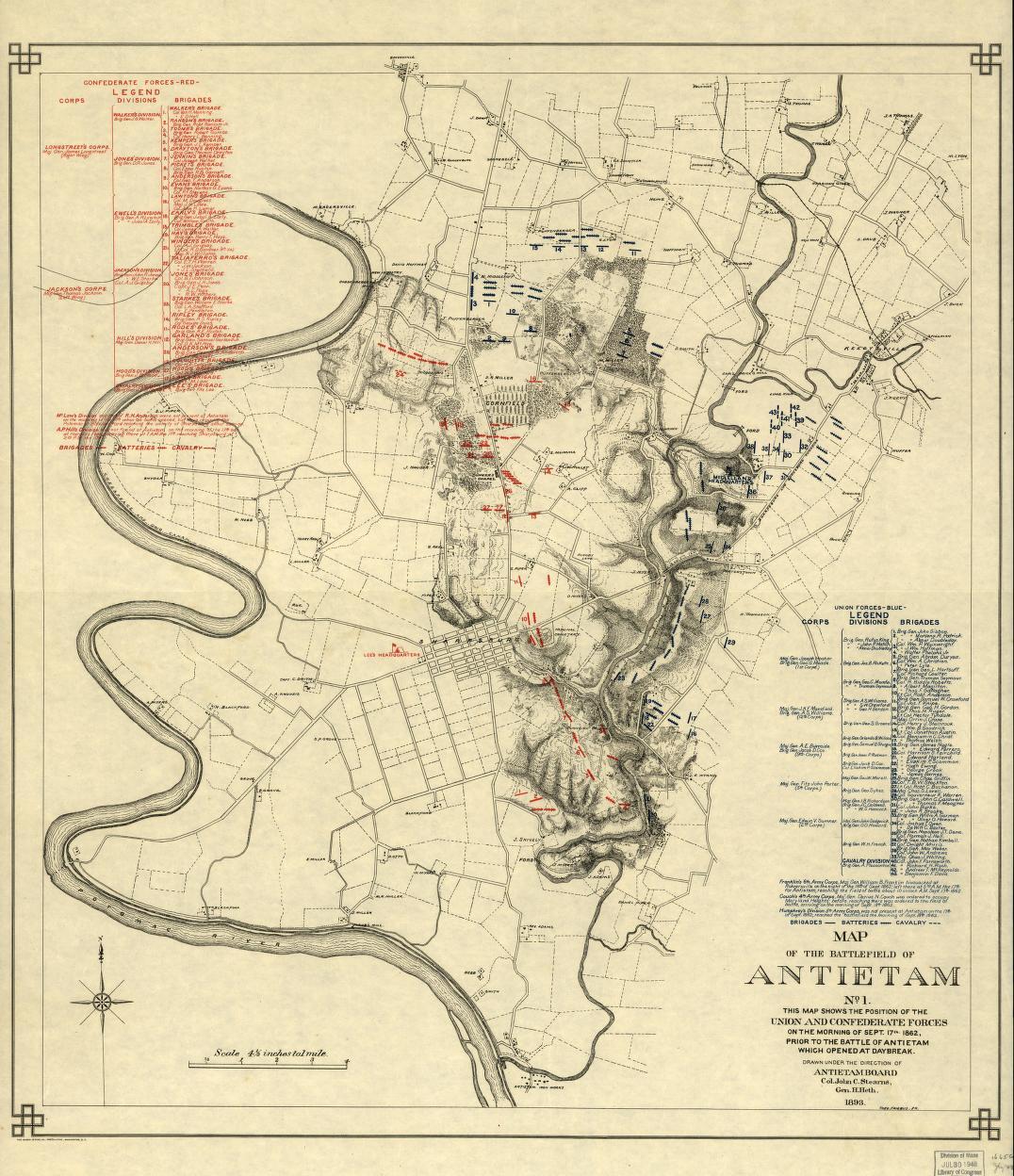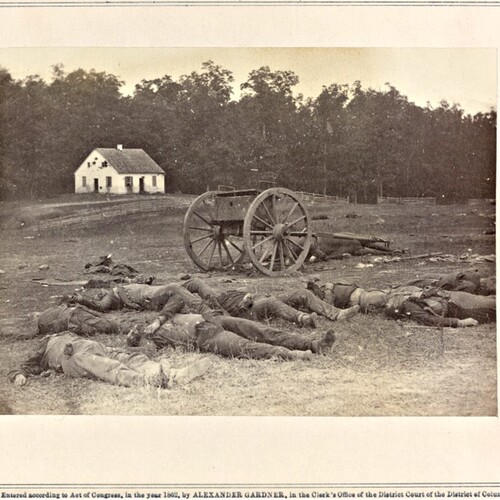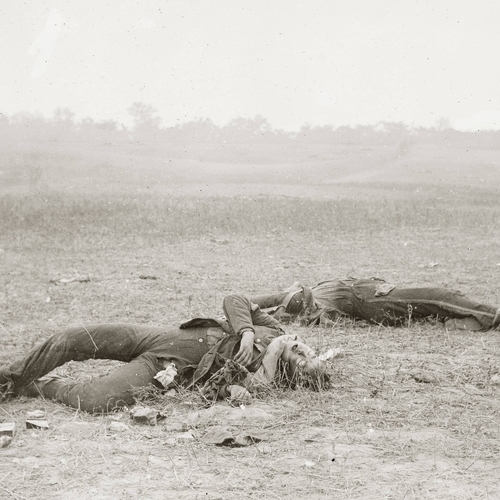Battle of Antietam
The Battle of Antietam is widely known as one of the most gruesome battles in the Civil War. With over 130,000 soldiers from both sides involved and an estimated 22,717 casualties, the battle was the bloodiest day on American soil.
Several weeks before the battle, General Robert E. Lee had marched his Confederate troops north to draw the fighting away from southern states, yet had experienced very little success. Lee's decision to fight at Antietam was critqued by many, as a defeat could completely destroy the Confederate army of northern Virgnia. The battle began when Union forces, under the leadership of General George B. McClellan, attacked the Confederate position in Antietam Creek. The majority of the day's fighting was composed of Union attacks followed by Confederate counterattacks. There were some breakthroughs for the Union army during the fighting, yet the Confederate resistance stood strong under the leadership of General Lee and General Stonewall Jackson at Dunker Church. The final attack of the day came from Union General Ambrose E. Bursnide, yet it was quickly thwarted by Confederate General A.P Hill's army marching up from West Virginia. The battle ended late in the afternoon the very same day and both armies went their seperate ways.
While General Robert E. Lee's army eventually retreated back through Virginia, it would be difficult to determine a victor of the battle considering both sides had such great casualties. President Abraham Lincoln did end up declaring the battle as a victory for the Union, but so he could issue his Emancipation Proclamation. As the battle came to a close, over 22,000 men were either captured, wounded, or killed as a result of the intense fighting. The Confederate army accounted for 10,316 casulaties, while the Union army accounted for over 12,000. The aftermath of the Battle of Antietam also had a major affect on the rest of the Civil War. Following Lincoln's Emancipation Proclomation, England and France cut potential ties with the Confederacy due to the fact that both countries were not in favor of supporting slavery. If the Confederacy gained the support of Engand and France, the rest of the war could have looked significantly different.




